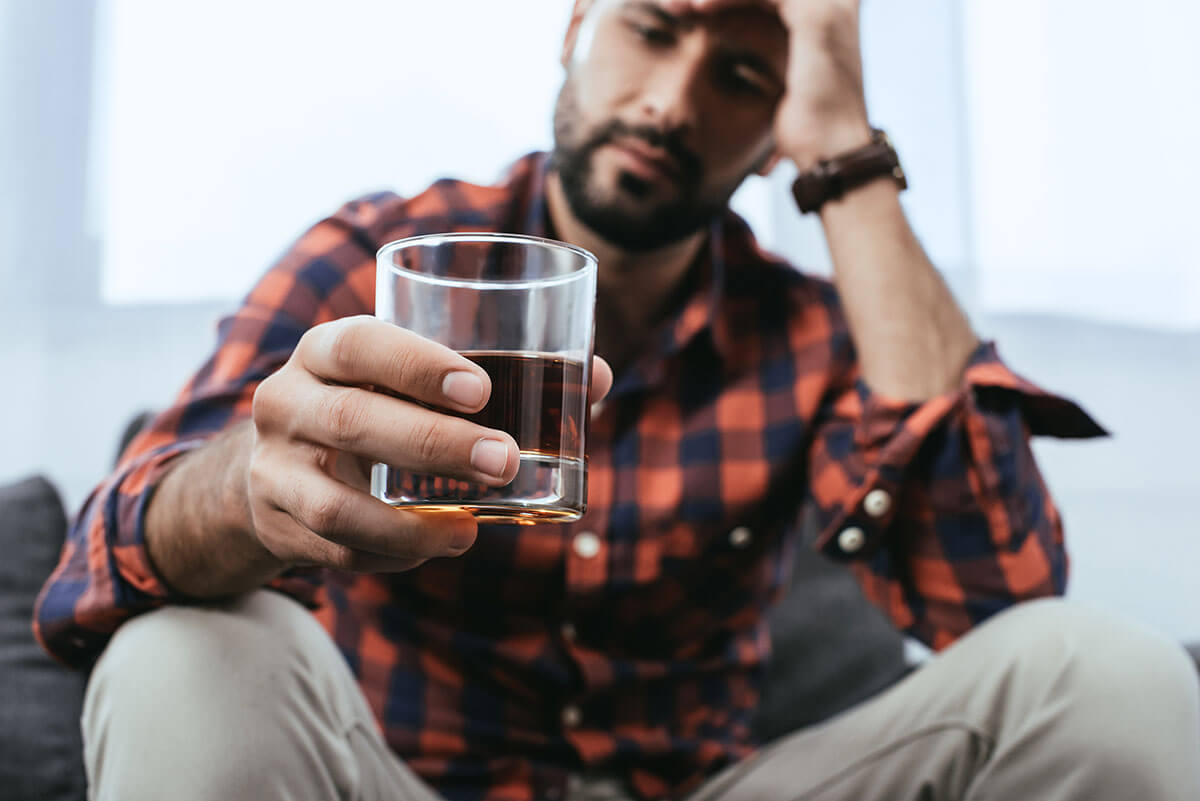It’s often hard for people to recognize the signs of alcohol addiction within themselves. They may tell themselves that they’re just social drinkers or that consuming alcohol is a harmless way of dealing with stress. Some people continue presenting a polished, controlled front to the world. However, that doesn’t mean there aren’t underlying signs of alcohol addiction, no matter how in-control someone may seem. That’s why alcoholics need alcohol detox to get sober and overcome their addiction.
What is Alcohol Addiction?
An alcohol addiction is when a person feels compelled to consume alcohol. It may start out as having one drink under peer pressure at a party. For alcoholics, drinking progresses to the point that the individual has difficulty getting through the day without having at least one drink. Alcohol addiction typically leads to negative impacts in most aspects of a person’s life.
Individuals showing signs of alcohol addiction usually have a difficult time recognizing there is a problem. Without help, their alcohol abuse disorder could cause them to suffer all kinds of short and long-term effects, including:
- Blackouts
- Damage to the brain
- Memory loss
- Mood disorders
- Anxiety disorders
- High blood pressure
- Heart issues
- Liver disease
- Pancreatic disease
- Weakened immune system
One way of avoiding irreversible damage from alcohol addiction is getting into addiction detox programs FL as soon as possible. There are a variety of rehab options available, including inpatient treatment or partial hospitalization services. The earlier someone seeks help, the more likely it is that they can overcome any health or mental issues caused by alcohol addiction.
What Are Some Signs of Alcohol Addiction?
Below are some of the most common signs of alcohol addiction that show your drinking is reaching a critical level. You may notice these issues yourself or have them brought to your attention by concerned friends and family.
1. You Always Drink Too Much
How often does it happen that one quick drink turns into a whole bottle, then several more? Is it necessary for you to consume a lot of alcohol to feel any sort of effect? That means you’ve reached a point where you’ve built up a tolerance to the substance in your body.
Do you find constantly find yourself in a state where you have no idea what’s happening around you? That could put you in dangerous situations that could lead to a loss of freedom or even your life.
2. The Only Thing You Care About is Drinking
While there are people who hold down stressful jobs while drinking, most people find it difficult to maintain their responsibilities. Blowing off school, work, or family functions because you’d prefer to drink is one of the major signs of alcohol addiction.
A lot of your money may go to purchasing alcohol versus paying for vital household expenses. Many people who abuse alcohol end up in financial trouble because of these issues.
3. It’s How You Deal With Your Problems
Many people showing signs of alcohol addiction have an underlying mental health disorder. Conditions like depression and anxiety can fuel your desire to drink, driving you into a deeper hole. You would likely be diagnosed as having a co-occurring disorder, meaning any treatment program should be geared toward helping with both sets of issues.
How Do You Get Control of Alcohol Addiction?
The first thing you must do is acknowledge that you’re showing signs of alcohol addiction. You can’t progress unless you force yourself to admit there is a problem. Next, don’t be afraid to ask for help from friends and loved ones. Let them help you find a Florida detox center or residential treatment program where you can receive the proper treatment for your alcohol problem.
There is no quick fix for dealing with alcohol addiction. The path to recovery will be long and hard. You must prepare yourself to face the challenge ahead, which can be helped by building a network of support to rely on when you struggle to stay in recovery. You deserve a life free of substance abuse, so don’t be afraid to take the first step toward getting help.

